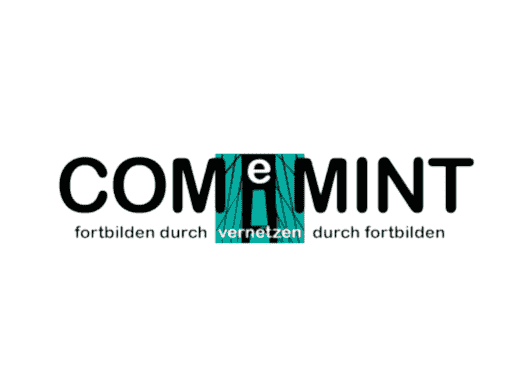Digital und Binnendifferenziert: Das Potential digital gestufter Lernhilfen für den Biologieunterricht
Kursstart: 15. September 2024
Digital und Binnendifferenziert: Das Potential digital gestufter Lernhilfen für den Biologieunterricht
ComeMINT-Netzwerk Biologie
Wissenschaftliche Einordnung:
Kursstart: 15. September 2024
Digital und Binnendifferenziert: Das Potential digital gestufter Lernhilfen für den Biologieunterricht
ComeMINT-Netzwerk Biologie
-
Umfang: 8 Lektionen
-
Aufwand: 1 Stunde/Woche
-
Teilnehmende aktuell: 589
-
Lizenz: CC BY-NC 4.0
-
Kursstart: 15. September 2024
-
Kursende: -
-
Status aktuell: Laufender Kurs
-
Verfügbare Sprachen:
Details zum Kurs
Inhaltsübersicht
Allgemeine Informationen zum Kurs
Grundlegend handelt es sich bei dieser Fortbildung um eine Online-Selbstlerneinheit zum Potential digital gestufter Lernhilfen für den digitalen und binnendifferenzierten Biologieunterricht. Die Fortbildung ist in vier Basismodule und drei Aufbaumodule unterteilt. Die Basismodule bilden die Grundlage zur optionalen Vertiefung in einem oder mehreren der Aufbaumodule. Neben der Online-Selbstlerneinheit können die Kursteilnehmenden über Chat-Foren oder synchronen (Online-) Austauschformaten miteinander in Kontakt treten.
Kursinhalt
- Basismodul 1: Theoretische Grundlagen zu gestuften Lernhilfen (gLh), Heterogenität und Diklusion
- Basismodul 2: Nutzungsweisen und Lernwirksamkeit von gLh
- Basismodul 3: Gelingensbedingungen von gLh
- Basismodul 4: Digitale Umsetzung von gLh mit Moodle, H5P und QR-Lernhilfe
- Aufbaumodul Erkenntnisgewinnung: Einführung in den Kompetenzbereich Erkenntnisgewinnung und Anwendungsbeispiele zum Themengebiet Experimentieren
- Aufbaumodul Kommunikation: Einführung in den Kompetenzbereich Kommunikation und Anwendungsbeispiele zum Themengebiet Genetik
- Aufbaumodul Bewertung: Einführung in den Kompetenzbereich Bewertung und Anwendungsbeispiele zum Themengebiet Ethik
Lernziele
- Die Fortbildung soll eine Wissensvermittlung zu Heterogenitätssensibilisierung und Diklusion umfassen und dabei den inklusivem und bedarfsgerechtem Biologieunterricht in den Fokus nehmen, der die Bedürfnisse aller Lernenden berücksichtigt.
- Den teilnehmenden (angehenden) Biologielehrkräften wird die Möglichkeit geboten, digitalisierungsbezogene Kompetenzen im Hinblick auf den binnendifferenzierten Biologieunterricht aufzubauen oder zu vertiefen.
- Neben der Professionalisierung in der Nutzung digital gestufter Lernhilfen erwerben die teilnehmenden Lehrkräfte Medienkompetenz im Umgang mit den vorgestellten digitalen Anwendungen.
Vorkenntnisse
Vorkenntnisse sind nicht erforderlich.
Kursablauf
Die Fortbildung startet am 15.09.2024.
Sie ist mit insgesamt 8 Lektionen modulartig aufgebaut und die Bearbeitung kann jederzeit pausiert und zu einem späteren Zeitpunkt fortgesetzt werden.
Nach einer kurzen Einführung werden in den darauffolgenden Lektionen die vier Basismodule eigenständig erarbeitet. Die Wissensüberprüfung erfolgt jeweils durch ein Self-Assessment nach jeder Lektion. Nach Abschluss der vier Basismodule kann eines oder mehrere der Aufbaumodule zu dem gewünschten Kompetenzbereich gewählt werden. In diesem Zusammenhang werden die Kursteilnehmenden dazu befähigt, eigene digitale Lehr- und Lernangebote zu erstellen. Dieser Prozess kann auf Wunsch von synchronen Online-Austauschangeboten begleitet werden.
Zertifikat
Für die aktive Teilnahme am Kurs erfolgt bei Abschluss die Ausstellung eines automatisierten Zertifikats, welches Ihren Benutzernamen, den Kursnamen und die abgeschlossenen Lektionen beinhalten. Es wird darauf hingewiesen, dass es sich nur um eine Bestätigung handelt, die aussagt, dass die Benutzerin oder der Benutzer zumindest 75% der gestellten Selbstüberprüfungsfragen richtig beantwortet hat.
Lizenz
Dieses Werk ist lizenziert unter Creative Commons - nicht kommerziell 4.0 International (CC BY-NC 4.0)
Zusätzliche Inhalte
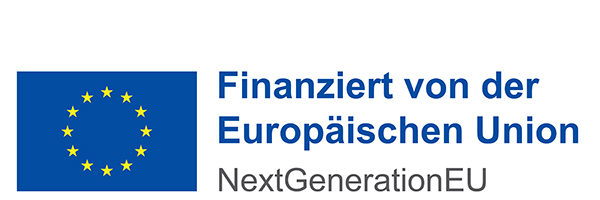
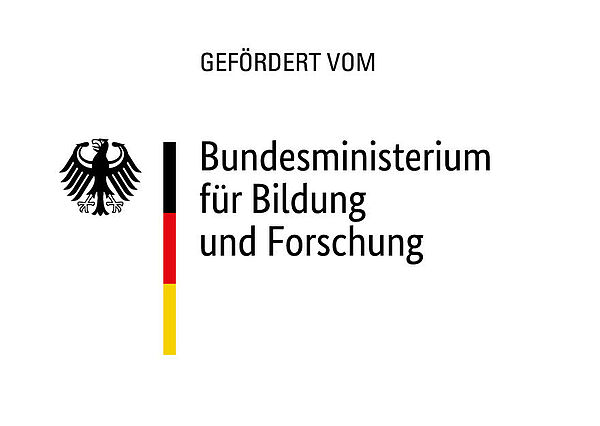
Finanziert durch die Europäische Union – NextGenerationEU und gefördert durch das Bundesministerium für Bildung und Forschung. Die geäußerten Ansichten und Meinungen sind ausschließlich die des Autors/der Autorin und spiegeln nicht unbedingt die Ansichten der Europäischen Union, Europäischen Kommission oder des Bundesministeriums für Bildung und Forschung wieder. Weder Europäische Union, Europäische Kommission noch Bundesministerium für Bildung und Forschung können für sie verantwortlich gemacht werden.
Kursleitung
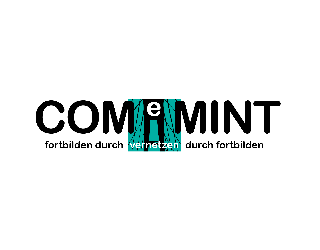
ComeMINT-Netzwerk Biologie
Das ComeMINT-Netzwerk Biologie ist Teil des Verbundprojektes ComeMINT-Netzwerk. fortbilden durch vernetzen – vernetzen durch fortbilden. Gelingensbedingungen adaptiver MINT-Fortbildungsmodule in Community Networks. Das ComeMINT-Netzwerk Biologie bündelt die biologiedidaktische Expertise aus drei Standorten Deutschlands und umfasst die folgenden wissenschaftlichen Akteure:
Pädagogische Hochschule Ludwigsburg
- Prof. Dr. Steffen Schaal
- Dr. Rebekka Siedler
Universität zu Köln
- Prof. Dr. Jörg Großschedl
- Dr. Nadine Großmann
- Lea Gussen
- Ricarda Lohrsträter
Universität Bielefeld & Universität Duisburg-Essen
- Prof. Dr. Matthias Wilde
- Dr. Svea Kleinert
- Nicol Sperling
- Margit Offermann
- Pascal Schaldach
Partner:innen
Alle Verbundprojekte des Kompetenzzentrums MINT konzentrieren sich auf die forschungsbasierte Entwicklung von Fort- und Weiterbildungsangeboten für Lehrkräfte und Multiplikator:innen mit dem Schwerpunkt der Gestaltung eines digital gestützten Unterrichts in den Fächern Mathematik, Informatik, Naturwissenschaften, Sachunterricht und Technik. Das ComeMINT-Netzwerk Biologie hat dazu ein Konzept zur Professionalisierung von (angehenden) Biologie-Lehrkräften in den Bereichen Digitalisierung und Heterogenitätssensibilität umgesetzt.
Im Rahmen der Konzeptualisierung und iterativen Erprobung der Fortbildung wurden die Inhalte dieser Fortbildung in Form von Online-Workshops innerhalb der Fortbildungsreihe BiConnected an der Universität Bielefeld evaluiert und im Anschluss anhand der Rückmeldungen entsprechend optimiert.
-

PH Ludwigsburg
-
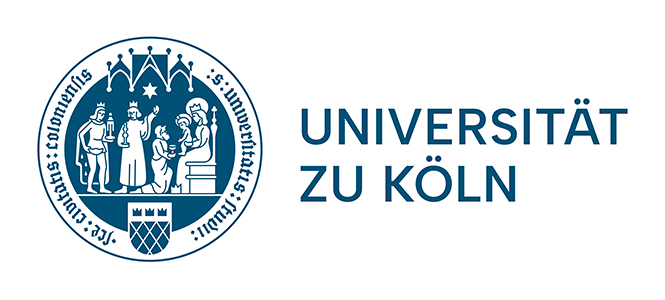
Universität zu Köln
-

Universität Bielefeld
-

BiConnected Universität Bielefeld
